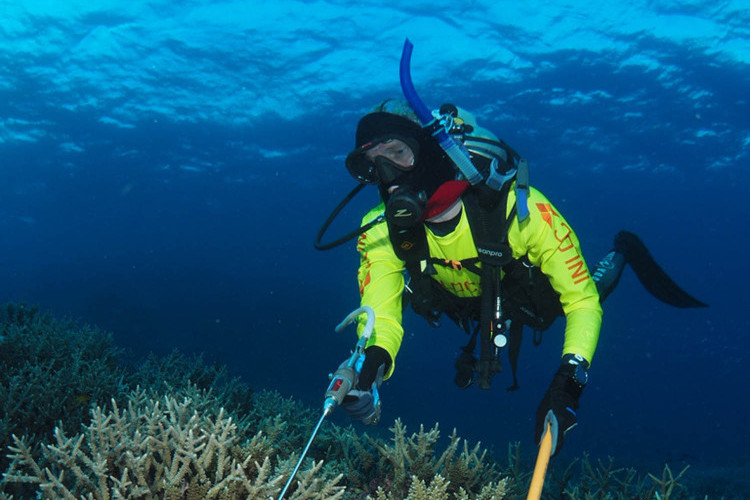General News
5 August, 2022
Local Organisation Finalist for Prestigious Science Award
THE innovative work of the Cairns-based Reef and Rainforest Research Centre (RRRC), along with a team of researchers with the National Environmental Science Program, was shortlisted for the 2022 Eureka Prize in Applied Environmental Research for the Integrated Pest Management Program (IPM).

The Australian Museum Eureka Prizes are the country’s most comprehensive national science awards.
RRRC Managing Director, Sheriden Morris, is honoured to be nominated.
“I’m so proud of what we have accomplished,” Ms Morris said.
“Our initial Eureka! moment involved contemplating whether principles of IPM, a well-established agricultural practice on land, could be applied to outbreaks of a marine pest, the coral-eating Crown-of-Thorns Starfish Local Organisation Finalist for Prestigious Science Award (COTS), on the Great Barrier Reef (GBR).
“A multidisciplinary team of researchers developed a strategy to investigate, then worked collaboratively with on-water COTS control operators to research, implement and rigorously evaluate IPM for coral reef protection.
“This is recognition of the extraordinary research capability here in the North, working with the Reef Managers and the Tourism Industry to protect the Great Barrier Reef.” Since the introduction of IPM, more than 1.1 million COTS have been culled, protecting a reef area of more than 726,000 hectares.
The IPM program aimed for a 50% Indigenous intake, and around 85% of graduates were employed by marine tourism operators, commercial dive operators or in the COTS control program.
Building on this success, the RRRC runs an Indigenous leadership COTS control training program that recognises and supports the aspirations of First Nations Peoples to care for their sea country.
Jordy Lane has Aboriginal, and Torres Strait Islander heritage and first completed COTS diver training in 2015.
He has since worked his way up through the ranks and is currently the Dive Supervisor on InLoc’s “Capricorn Star” vessel. “I would 100% recommend becoming a COTS diver, as long as you’re willing to give it a crack,” Mr Lane said.
“Our work is more than just going for dives on the reef and looking for starfish; it’s not always peachy conditions on the water or amazing reefs.
“Crew are also responsible for helping run the ship as well as cooking/cleaning/tender operating, operating the main vessel anchor, and on top of this, we also conduct maintenance aboard our ship to keep her in good condition.”
Mr Daniel Gschwind was CEO of the Queensland Tourism Industry Council during nearly all of this period. “The past few years have been incredibly challenging for Australia’s most valuable natural asset - the Great Barrier Reef,” Mr Gschwind said.
“The COTS control program based on IPM principles has been a shining light through all this bad news.
“I hope this example inspires other researchers and industries to think more innovatively about effective solutions to environmental problems. Because we’re going to need them.”


